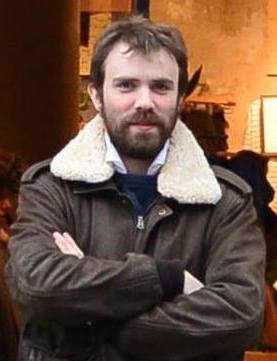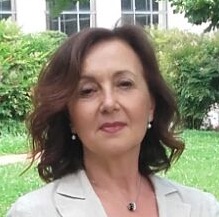Studying at the University of Verona
Here you can find information on the organisational aspects of the Programme, lecture timetables, learning activities and useful contact details for your time at the University, from enrolment to graduation.
Academic calendar
The academic calendar shows the deadlines and scheduled events that are relevant to students, teaching and technical-administrative staff of the University. Public holidays and University closures are also indicated. The academic year normally begins on 1 October each year and ends on 30 September of the following year.
Course calendar
The Academic Calendar sets out the degree programme lecture and exam timetables, as well as the relevant university closure dates..
| Period | From | To |
|---|---|---|
| Sem. 1A | Sep 23, 2019 | Oct 31, 2019 |
| Sem. 1B | Nov 11, 2019 | Jan 11, 2020 |
| Sem. 2A | Feb 17, 2020 | Mar 28, 2020 |
| Sem. 2B | Apr 6, 2020 | May 30, 2020 |
| Session | From | To |
|---|---|---|
| Sessione d'esame invernale | Jan 13, 2020 | Feb 15, 2020 |
| Sessione d'esame estiva | Jun 3, 2020 | Jul 25, 2020 |
| Sessione d'esame autunnale | Aug 24, 2020 | Sep 19, 2020 |
| Session | From | To |
|---|---|---|
| Sessione di laurea estiva | Jul 6, 2020 | Jul 11, 2020 |
| Sessione di laurea autunnale | Nov 2, 2020 | Nov 6, 2020 |
| Sessione di laurea invernale | Apr 7, 2021 | Apr 13, 2021 |
| Period | From | To |
|---|---|---|
| Festa di Ognissanti | Nov 1, 2019 | Nov 1, 2019 |
| Chiusura Ateneo | Nov 2, 2019 | Nov 2, 2019 |
| Festa dell'Immacolata | Dec 8, 2019 | Dec 8, 2019 |
| Vacanze di Natale | Dec 23, 2019 | Jan 6, 2020 |
| Vacanze di Pasqua | Apr 10, 2020 | Apr 14, 2020 |
| Festa della liberazione | Apr 25, 2020 | Apr 25, 2020 |
| Festa del lavoro | May 1, 2020 | May 1, 2020 |
| Sospensione delle lezioni | May 2, 2020 | May 2, 2020 |
| Festa del Santo Patrono | May 21, 2020 | May 21, 2020 |
| Sospensione delle lezioni | May 22, 2020 | May 23, 2020 |
| Festa della Repubblica | Jun 2, 2020 | Jun 2, 2020 |
| Vacanze estive | Aug 10, 2020 | Aug 15, 2020 |
Exam calendar
Exam dates and rounds are managed by the relevant Humanistic Studies Teaching and Student Services Unit.
To view all the exam sessions available, please use the Exam dashboard on ESSE3.
If you forgot your login details or have problems logging in, please contact the relevant IT HelpDesk, or check the login details recovery web page.
Should you have any doubts or questions, please check the Enrollment FAQs
Academic staff
 cristina.bertazzoni@univr.it
cristina.bertazzoni@univr.it
 gregoirebernardjohan.cousin@univr.it
gregoirebernardjohan.cousin@univr.it
 stefania.pontrandolfo@univr.it
stefania.pontrandolfo@univr.it
 marco.ubbiali@univr.it
marco.ubbiali@univr.it
Study Plan
The Study Plan includes all modules, teaching and learning activities that each student will need to undertake during their time at the University.
Please select your Study Plan based on your enrollment year.
1° Year
| Modules | Credits | TAF | SSD |
|---|
2° Year activated in the A.Y. 2020/2021
| Modules | Credits | TAF | SSD |
|---|
Indirect internship for educational consulting
| Modules | Credits | TAF | SSD |
|---|
| Modules | Credits | TAF | SSD |
|---|
Indirect internship for educational consulting
| Modules | Credits | TAF | SSD |
|---|
Legend | Type of training activity (TTA)
TAF (Type of Educational Activity) All courses and activities are classified into different types of educational activities, indicated by a letter.
Educational counseling for new fragilities (2019/2020)
Teaching code
4S008185
Teacher
Coordinator
Credits
6
Language
Italian
Scientific Disciplinary Sector (SSD)
M-PED/01 - PEDAGOGY, THEORIES OF EDUCATION AND SOCIAL EDUCATION
Period
Sem. 2B dal Apr 6, 2020 al May 30, 2020.
Learning outcomes
Knowledge and understanding 1. Know the essential features of the pedagogist's professional profile and understand the complexity of the functions and areas in which the pedagogical work manifested. 2. Define the concept of "fragility" and its semantic extension, which involves social contexts and processes, ages and life choices, personal beliefs and cultural values. 3. Understand that educational work and pedagogical knowledge are also "fragile" practices, but awareness of this dimension can be an element of strength and not of professional weakness. Applying knowledge and understanding 1. Identify what could be the "new fragilities" that emerge not only from the economic and social world, but also from the sphere of relationship life and from the crisis of meaning horizons. 2. Knowing how to recognize and deepen the many "faces" of fragility by looking for the cause in the loss of one's individual, social and cultural identity. 3. Develop pedagogical research projects and consequent educational interventions starting from a positive vision of fragility, understood as an existential condition that is at the bottom of every age of life.
Program
The program is divided into two basic themes, closely related to each other: the first concerns the professional figure of the "pedagogist" in his function as "pedagogical consultant"; the second concerns the theme of “fragility”, understood as a common interpretative element, present in various ways in the subjects and contexts of life that require the presence of a pedagogical consultant.
Methodological part: "who is" the pedagogical consultant and "what" is called to do
Being "educator" and becoming "pedagogist": continuity and discontinuity between the two professional profiles
Identity, functions, skills and work contexts of the pedagogist as a "consultant"
Pedagogical consultancy as a "profession"
The potential and limits of pedagogical consulting work
Content part: the "faces of fragility" and its multiple expressions
What can be understood by "fragility", which is not synonymous with weakness or lack
The fragility connected to a "functional" model of society only
The fragility connected to family life and in particular to the role of parents
The fragility connected to individual life, which is expressed in the form of dependency
The fragility connected to the crisis of personal and professional identity and of the principle of social responsibility
The teaching organization of the course is characterized by the following methods, which will alternate according to the needs connected with the program:
the "frontal lecture", for the presentation of conceptually more important contents;
the "participatory lesson", useful for encouraging interventions, asking questions, formulating; reflections and giving space to brief debates on the issues addressed each time;
the "seminar lesson", with the possible intervention of some figures of pedagogical consultants who work in different working environments.
| Author | Title | Publishing house | Year | ISBN | Notes |
|---|---|---|---|---|---|
| D. Loro | Essere educatore e diventare pedagogista, Dispensa a. a 2019-2020 | 2020 | |||
| M. Benasayag | Fuinzionare o esistere | Vita e Pensiero | 2019 | ||
| S. Negri (a cura di) | La consulenza pedagogica | Carocci | 2014 |
Examination Methods
Texts for the exam
To achieve the learning objectives listed above, it is necessary to study three texts, mandatory for all, frequent and not frequent:
D. Loro, Being an educator and becoming an pedagogist, Lecture a. a. 2019-2020 (the lecture will be available only at the end of the course at the Ateneo stationery, Lungadige Porta Vittoria, 37. www.ateneovr.it).
S. Negri (edited by), Pedagogical consulting. Professional perspectives, Rome, ed. Carocci, 2014.
M. Benasayag, Functioning or existing? trad. from the French, Milan, ed. Life and Thought, 2019.
Examination test procedure
The objective of the final exam is to verify the level of knowledge, understanding and operational application of what has been formulated as specific educational objectives and as "expected learning outcomes".
The exam will normally be oral. If the number of enrolled exceeds a certain number, the exam can continue in oral form the next day, or be done in written form. In this case the written test will last a total of 3 hours and will consist of 5 open questions. Each answer will be awarded 6 points.
During the oral interview the questions will be of the following type:
• questions of a “descriptive” nature, to verify the correct learning of the studied contents and the ability to summarize the most important contents;
• "argumentative" questions, to verify both the ability to explain through which logical steps a reflection, a demonstration or a theory develops;
• questions of "connection" or "comparison" between authors, specific themes, concepts and theories, to verify the reasoning competence;
• "application" or "operational" questions, to verify the ability to think, in concrete and operational terms, of the theoretical contents being studied and to translate them into professional practice.
Type D and Type F activities
Modules not yet included
Career prospects
Module/Programme news
News for students
There you will find information, resources and services useful during your time at the University (Student’s exam record, your study plan on ESSE3, Distance Learning courses, university email account, office forms, administrative procedures, etc.). You can log into MyUnivr with your GIA login details: only in this way will you be able to receive notification of all the notices from your teachers and your secretariat via email and soon also via the Univr app.
Student mentoring
Graduation
Documents
| Title | Info File |
|---|---|
|
|
pdf, it, 99 KB, 13/10/23 |
|
|
pdf, it, 101 KB, 10/04/24 |
List of theses and work experience proposals
| theses proposals | Research area |
|---|---|
| Psicoanalisi | Psychology - Psychology, Psychoanalysis |
Gestione carriere
Linguistic training CLA
Practical information for students
Documents
| Title | Info File |
|---|---|
|
|
pdf, it, 325 KB, 02/05/23 |
|
|
pdf, it, 212 KB, 02/05/23 |
|
|
pdf, it, 131 KB, 02/05/23 |
Stage e Tirocini
Per le altre attività formative (crediti F) sono previsti 9 cfu (pari a 225 ore) da acquisire solamente attraverso l’attività di tirocinio obbligatoria, a sua volta suddivisa in:
- tirocinio indiretto (1 cfu: 25 ore di frequenza obbligatoria in università per il 75%) in preparazione dell’attività formativa sul campo;
- tirocinio diretto (8 cfu), da svolgersi presso enti convenzionati.
L’ordinamento didattico della LM in Scienze pedagogiche prevede che il tirocinio indiretto a frequenza obbligatoria si svolga in università per il 75% nel secondo anno (1 CFU: 25 ore).
Il tirocinio indiretto consiste in un accompagnamento iniziale delle/degli studenti da parte dei tutor attraverso un percorso di formazione della durata di 25 ore.
La finalità di questo percorso è quella di preparare le/gli studenti alla particolare forma di apprendimento costituita dal tirocinio, dotandoli di conoscenze e strumenti adeguati a osservare, comprendere e rielaborare criticamente l’esperienza di tirocinio nei servizi educativi e ad affrontare il tirocinio negli enti con metodo e consapevolezza.
Il percorso, da attuare in gruppi da 20-25 persone sotto la supervisione di un tutor proveniente dal mondo professionale di educatori e pedagogisti, risponde alle esigenze costantemente espresse sia dalle/dagli studenti stessi sia dalle parti sociali che dai referenti degli enti convenzionati.
Nuove Linee Guida per il tirocinio di Scienze pedagogiche.
- Tutte le informazioni in merito agli stage per futuri studenti sono disponibili alla pagina Stage e tirocini.
- Tutte le informazioni in merito agli stage per studenti iscritti sono pubblicate in MyUnivr - come fare per - stage e tirocini.
- Tutte le informazioni in merito agli stage per le aziende sono disponili alla pagina Stage e tirocini per azienze.


 +390458028159
+390458028159















